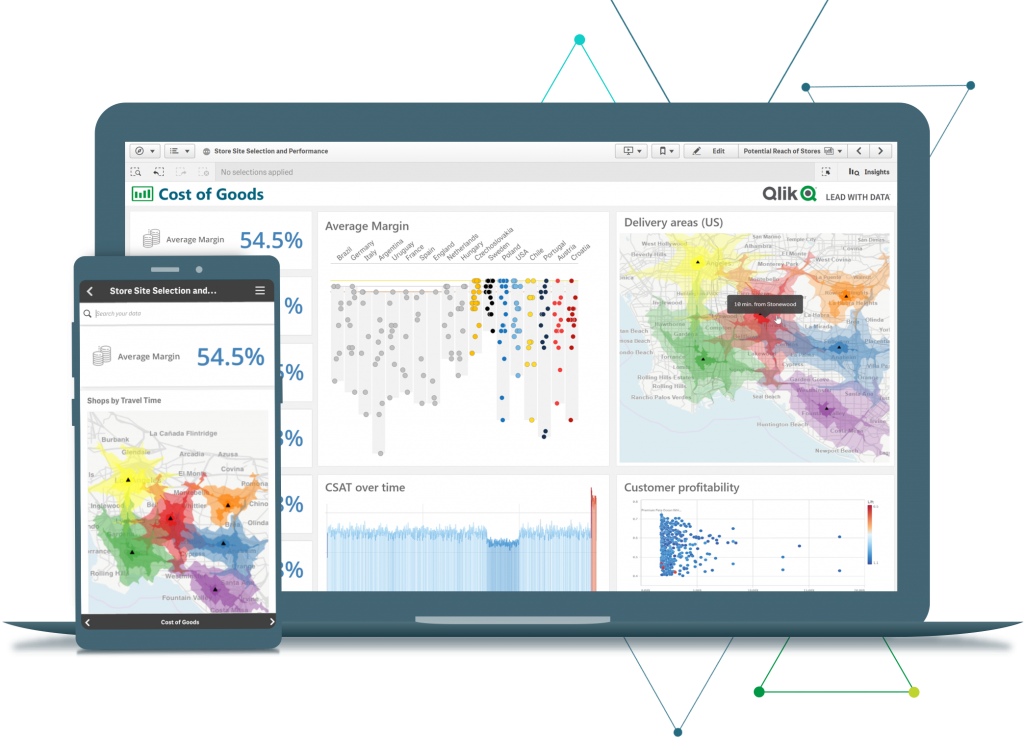
Business Intelligence Software for Small Businesses Made Easy
In today’s competitive business landscape, small businesses need to be agile and data-driven to stay ahead of the curve. Business intelligence (BI) software can help small businesses make informed decisions, optimize operations, and drive growth. However, many small businesses are intimidated by the complexity and cost of traditional BI solutions. Fortunately, there are now many user-friendly and affordable BI software options available that are specifically designed for small businesses.
What is Business Intelligence Software?
Business intelligence software is a set of tools and technologies that help organizations collect, analyze, and visualize data to make better business decisions. BI software can help small businesses to:
- Analyze sales and customer data: Identify trends, patterns, and insights that can inform marketing and sales strategies.
- Monitor financial performance: Track income, expenses, and cash flow to optimize financial management.
- Improve operational efficiency: Identify areas for process improvement and streamline operations.
- Enhance customer service: Analyze customer feedback and behavior to improve customer satisfaction.
Benefits of Business Intelligence Software for Small Businesses
Implementing BI software can bring numerous benefits to small businesses, including:
- Improved decision-making: With access to accurate and timely data, small businesses can make informed decisions that drive growth and profitability.
- Increased efficiency: BI software can automate many manual tasks, freeing up staff to focus on high-value activities.
- Enhanced customer insights: BI software can help small businesses to better understand their customers, preferences, and behaviors.
- Competitive advantage: Small businesses that use BI software can gain a competitive edge over those that do not.
Features of Business Intelligence Software for Small Businesses
When selecting a BI software solution, small businesses should look for the following features:
- Ease of use: The software should be intuitive and easy to use, with minimal training required.
- Data connectivity: The software should be able to connect to various data sources, such as spreadsheets, databases, and cloud applications.
- Data visualization: The software should be able to create interactive and dynamic visualizations, such as dashboards, reports, and charts.
- Real-time analytics: The software should be able to provide real-time insights and analysis, enabling small businesses to respond quickly to changes in the market.
- Scalability: The software should be able to grow with the business, handling increasing volumes of data and user demand.
Top Business Intelligence Software for Small Businesses
Some popular BI software options for small businesses include:
- Tableau: A user-friendly and interactive BI platform that connects to various data sources.
- Power BI: A cloud-based BI solution from Microsoft that provides real-time analytics and data visualization.
- QlikView: A self-service BI platform that enables small businesses to create interactive dashboards and reports.
- Google Data Studio: A free BI tool that enables small businesses to create interactive and dynamic visualizations.
- Zoho Analytics: A cloud-based BI solution that provides real-time analytics and data visualization, with integration with Zoho CRM and other Zoho applications.
Implementation and Integration
When implementing BI software, small businesses should consider the following steps:
- Define business objectives: Identify the key business objectives and metrics that will be used to measure success.
- Assess data quality: Evaluate the quality and accuracy of existing data sources.
- Select a BI software: Choose a BI software solution that meets the business needs and objectives.
- Configure and customize: Configure and customize the BI software to meet the specific needs of the business.
- Train and support: Provide training and support to users to ensure successful adoption and usage.
Best Practices for Small Businesses
To get the most out of BI software, small businesses should follow these best practices:
- Start small: Begin with a small pilot project and gradually expand to other areas of the business.
- Focus on key metrics: Identify and focus on key metrics that drive business success.
- Use data storytelling: Use data visualization and storytelling to communicate insights and recommendations to stakeholders.
- Continuously monitor and evaluate: Continuously monitor and evaluate the effectiveness of BI software and make adjustments as needed.
- Involve stakeholders: Involve stakeholders from various departments to ensure that BI software meets the needs of the entire organization.
Conclusion
Business intelligence software can help small businesses to make informed decisions, optimize operations, and drive growth. With many user-friendly and affordable BI software options available, small businesses can now easily implement BI solutions that meet their specific needs and objectives. By following best practices and selecting the right BI software, small businesses can unlock the power of data-driven decision-making and achieve competitive advantage in the market. Whether you are a small business owner, manager, or analyst, BI software can help you to make better decisions, improve operational efficiency, and drive business success.
Closure
Thus, we hope this article has provided valuable insights into Business Intelligence Software for Small Businesses Made Easy. We thank you for taking the time to read this article. See you in our next article!


